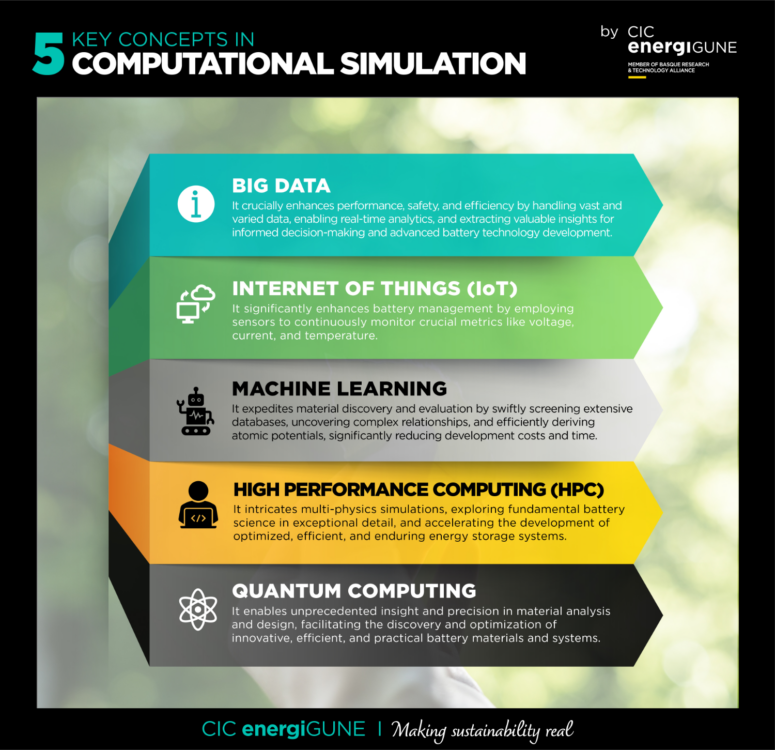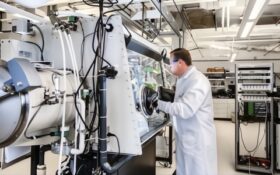The integration of big data, Internet of things (IoT), machine learning, high-performance computing and quantum computing is poised to revolutionise battery research and development.
A paper by Oier Lakuntza, postdoctoral researcher of the Computational Simulation research group at CIC energiGUNE, said these technologies:
- enhance battery performance, safety and sustainability
- streamline research efforts
- reduce costs
- accelerate the discovery of innovative battery materials and designs.
Lakuntza refers to the five Vs:
- volume
- variety
- velocity
- value
- veracity.
Vast datasets with varied data increase complexity. Electric vehicle (EV) applications demand data at the 1-second level or less, he said.
Real-time or near-real-time analytics have become crucial, he said. In particular, battery safety algorithms have become more computationally intensive, in order to maintain velocity and prevent critical failures.
Value is the underlying reason for tackling all other technical challenges big data brings with it. Having data is worthless if it cannot be used to generate value, he noted.
Different databases exist that provide structure information of many materials, with properties such as energy density, ion transport properties, charge and discharge rates.
Measuring sensors connected to devices have become commonplace. Battery management systems (BMS) are a prime example of IoT integration. They measure crucial performance metrics such as voltage, current and temperature.
They and battery state predictions (state of charge, state of health and remaining useful life), are computed with the help of machine learning (ML). It adds speed and ability to handle complex discoveries.
Lakuntza said one notable deficiency is the absence of alert mechanisms related to the behaviour of lithium-ion batteries. They are of great importance for monitoring tasks, even more when managing complex and sophisticated equipment.
High-performance computing (HPC) is a cornerstone in battery research, he said. A key advantage of HPC is its capacity to handle complex multi-physics simulations.
Quantum computers perform calculations that were previously beyond the capabilities of classical computers, such as handling complex quantum mechanical calculations with unparalleled efficiency.












